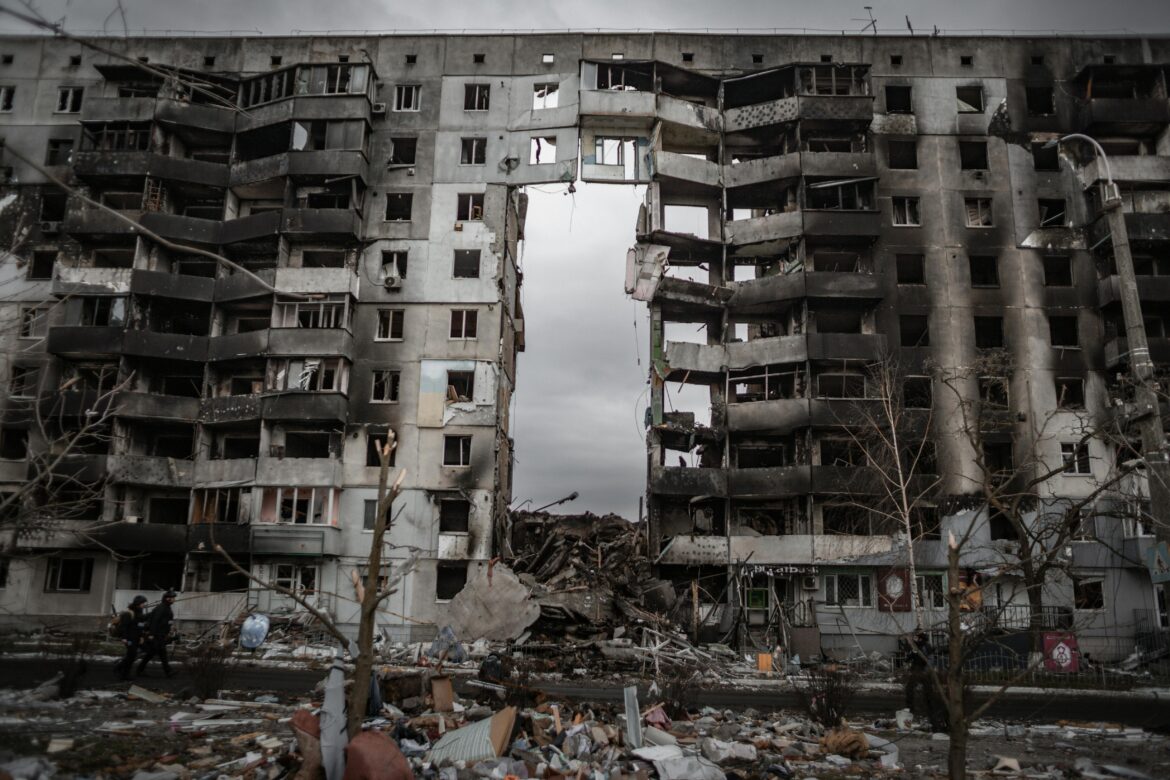Life and loss in the shadow of the war
Two years on, Tania Rak reflects on the war that tore the lives of thousands of Ukrainians apart.
A few weeks ago, the invasion of Ukraine marked its second anniversary. I think about it every day, and I know that millions of people now dislocated across the globe are going through a similar emotional rollercoaster, perhaps in silence.
Yes, you have all heard about it many times. Perhaps you are tired of the news. So am I. But unfortunately, there is no switch that will just make it go away.
New cemeteries, coffins, flags on the graves, deaths, grief, broken lives, plans, dreams, hopes. On the national or even international level, the deaths are statistics, research topics. On the individual level—well, imagine someone breaks your bones and then says, “crawl.” And you do.
I no longer recognise my friends. Of course, they are adjusted. All are working, all have become as flexible as Olympic gymnasts; lots of them have made a terrific effort to start again from zero and have stability. But then you see their glance. Empty. Dissociated. So tired. Sometimes, I also look at myself in the mirror and don’t recognize the stranger looking back at me. So, so tired, so different, mentally aged.
I wish public discourse paid more attention to how people morally feel about war. I am not speaking about myself here. Mine is mine and will stay with me only. But generally—the narrative “everyone has tough times” is not comforting at all. It erases the individual experience. Grief, however, is incomparable, unmeasurable, and feels different for each person.
But still. You build your life, you worry about its small inconveniences, and then it gets abruptly destroyed. Surely this is a legit reason to feel… horrible?
“When you lose everything, it liberates you, in a sense. When you need to mobilise resources to rebuild things from scratch, you cut the bullshit. It makes people fearless, even when they are scared.”
Our minds are designed for routines. Drastic changes are a stress. What if your stress never goes away? Factor in that you could become homeless, get laid off, lose a family member(s), immigrate with zero plans, find yourself in a completely new surrounding, I don’t know… get divorced? Live in fear that a shell might hit your house or the house of your friends or relatives. Yet, you need to wake up and go to your job because, with the turbulence caused by these times, the fear of dying in a ditch remains high. Do you stay normal after that? Most evidently, no. Not in a psychotic manner, but you are simply not the same person. And you can get the whole “palette” only if you go through it (and God willing, no one reading this ever has to).
You either get survivor syndrome and blame yourself because someone has suffered more, or you face the social judgements. Not talking about the war? You’re an unsympathetic bitch. Went on vacation for mental health reasons? You’re an egoistic bitch. Working in a foreign country? You’re a job-stealing immigrant. Not working? You’re a parasite. Immigrated but still talking about the war too much? You’re safe now, what’s your problem, adapt!
What’s the right way to think, talk, act, and live then?
The most unexpected discovery (surprise-surprise) of the war: it does not improve people. It strips them off whatever doesn’t feel good or doesn’t comply with how I (ideally) want to see my life, I will cut it out or distance myself, applying quality winning over quantity to every single thing in life.
War makes perception of reality raw and more radical, and people rougher. Yet you can learn from it: your biggest support system is your own self. You should build critical and analytical thinking, trust your gut, and set up your routines. However, you will not always be high on energy, especially in complicated times. Then there comes your close circle—not in the sense of emotional outsourcing, but the safe space for sharing, discussion, and co-creation. Other stuff = optional. Cut the unnecessary buzz.
“War makes perception of reality raw and more radical, and people rougher. Yet you can learn from it: your biggest support system is your own self.”
Because in silence, you hear better. You start to understand yourself, people, and things around you better. Sometimes, I listen to Depeche Mode—“All I ever wanted, All I ever needed is here in my arms.”
Though on a professional level, I think that words are sometimes necessary, I believe that the most significant transformations happen in silence. That is what I see as a public space; that is the most intense foe to feel; that is what I feel.
War is evil. Life is a serpentine of changes. Yet if it teaches something, it is the mobilisation of your resources, the skill to listen to yourself, to find more in less (resources, situations), and to find the adventurism to create from there. Despite, or in spite.
This piece first appeared in print in our Fearless for Freedom Issue.
